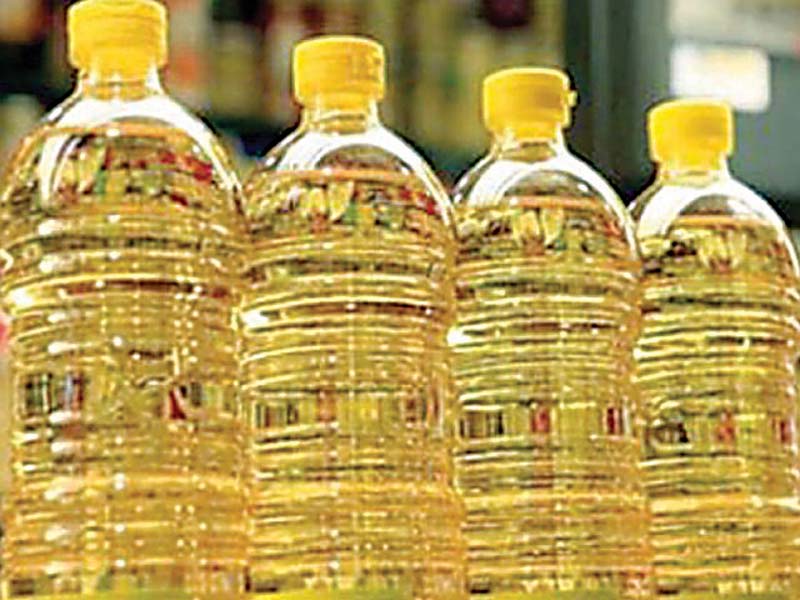KARACHI:
The local edible oil industry has called for fostering the cultivation of oilseed crops such as canola, sunflower, mustard, soybean, and others, alongside adopting innovative practices. These measures are aimed at reducing dependency on imports of around 3 million metric tonnes (MMTs) of edible oil, saving valuable foreign exchange, and meeting local per capita consumption of 4.50 MMTs, industry experts said.
Talking to The Express Tribune on Saturday, they explained that cultivating palm oil in the country is a tall order, as palm fruits mostly grow in Indonesia and Malaysia, where frequent rainfall meets the water requirements of the crop.
M Bashir Janmohammad, Chairman of the Westbury Group of Companies, said, “If we grow canola, sunflower, cottonseed, and others extensively, we will gradually save foreign exchange, eliminate market fluctuations, and decrease dependency on imports. We are currently doing the easy tasks of importing raw material and manufacturing 4.5 MMTs of standardised and high-quality banaspati and cooking oil to meet national demand.”
He said the demand of 250 million people is around 4.5 MMTs, while the production of indigenous oil is only about 0.50 MMT. The country has to rely on the import of edible oils and oilseeds to meet total consumption, which is a huge strain on the foreign exchange bill.
He also mentioned that this reliance on imports places immense pressure on Pakistan’s foreign exchange reserves. Encouraging palm oil cultivation could cut the import bills of edible oils if the crop’s commercial production is successful. The Sindh government has planned to promote palm oil plantations to increase local edible oil production. The Sindh Coastal Development Authority (SCDA), in collaboration with Malaysian firms, is promoting palm oil cultivation along the coastal belt. This initiative aims to enhance local production, reduce environmental pollution, and lower the edible oil import bill.
He noted that palm oil cultivation faces numerous challenges in Pakistan, such as low yield due to a lack of expertise in crop management, insufficient infrastructure, including storage facilities and efficient transportation, and challenges with marketing, as palm fruits are highly perishable and require careful handling to prevent deterioration. Overcoming these obstacles will require dedicated efforts and investments in training, technology, and infrastructure. Additionally, alternative crops, such as sunflower and rapeseed, which are better suited to the local climate and soil, should be cultivated to diversify the industry’s production base.
Regarding self-sufficiency, he said the outlook is not promising unless the industry changes its reliance on imports, as the federal government cannot afford to spend large amounts of foreign exchange. The industry should make more efforts and allocate funds, either jointly or separately, for the development of local oilseed cultivation.
He stressed that all industries must create special departments within their units to focus on growing more oilseeds. A collective effort is essential to reduce dependency on imports, as the edible oil industry has now become a multibillion-dollar investment. It is imperative for the industry to align with the government’s vision for self-reliance.
He added, “Today, the most essential thing is to scale up the country’s exports. The industry has not done enough in this regard. I believe the duty and tax remission for exports (DTRE) system will be practical, and we should focus on exporting Vanaspati and edible oil. Many Pakistani brands are well-known within the Pakistani community in Dubai, the UK, the US, and other countries. However, Pakistan’s produce is generally not available in these markets.”
Solvent Extractor and Hyderabad Chamber of Commerce and Industry (HCCI) President Adeel Siddiqui stated that unless the government provides support to the industry for cultivating oilseed crops, such as canola, sunflower, soybean, mustard, and others, with attractive incentives, special privileges, and a sustainable policy framework, it would not be feasible to make significant investments in agricultural lands.
He explained, “I run an average solvent extraction unit that has the capacity to consume 300 metric tonnes (300,000 kilograms) of any oilseed crop (sunflower, canola, soybean, and mustard) per day. The average oilseed crop yield per acre is around 15 maund (or 600 kilograms) in the country. This means my factory consumes 300,000 kg of sunflower, spreading across 500 acres per day, and if I run my unit for a month, it will use 9 million kg of sunflower, spanning 15,000 acres. In the country, we have an overall installed capacity of solvent extraction plants for around 24,000 metric tonnes per day. This indicates we need oilseed crops spread across tens of thousands of acres.”
- Desk Reporthttps://foresightmags.com/author/admin/











